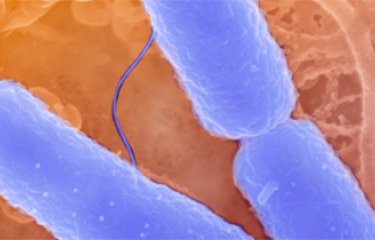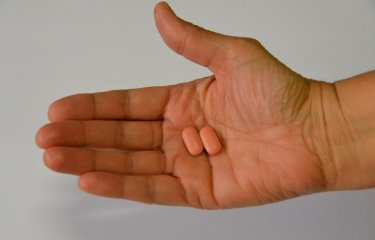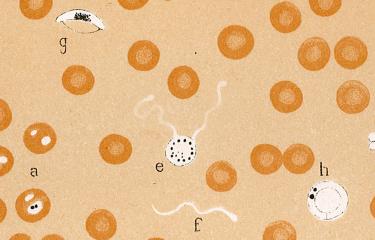Researchers at the Institut Pasteur have developed a novel approach in order to design a vaccine candidate against malaria based on clinical observations in humans. Among populations infected by malaria, they sought to discover which antigens trigger immune responses capable of eliminating the Plasmodium falciparum parasite. In a phase I clinical trial, they showed that protective antibodies resulting from vaccination was long-standing and highly effective -equal, or superior, to that observed in naturally-protected individuals living in endemic regions. These results give hope that it will soon be possible to finally develop an effective vaccine against this devastating disease.
Press release
Paris, november 8, 2005
In Africa, malaria kills one child every 30 seconds, and between 1 and 3 million people in total per year throughout the world, according to the WHO’s estimates, and the number of clinical cases occurring every year is estimated at 500 million. However, mainly because of the remarkable complexity of the development cycle of Plasmodium falciparum, the parasite responsible for malaria, no truly effective vaccine could previously be developed to control this terrible disease.
The vast majority of candidate vaccines against malaria have been selected based on the immune responses that they trigger in animals. However, they have often proved to be disappointing when assessed in clinical trials in humans. To circumvent this difficulty, Pierre Druilhe’s team from the Biomedical Parasitology Unit at the Institut Pasteur has developed an innovative approach for selecting vaccine candidates that are effective in humans.
Starting from the fact that the immune responses provoked by the Plasmodium falciparum parasite are extremely specific to its natural host, humans, the Institut Pasteur researchers pursued a novel approach: in individuals who had developed a protective immune response against the parasite, they directly sought out the proteins which had triggered this response. In fact, in endemic regions, individuals continually exposed who have survived in childhood attain a state of "premunition" in adulthood, which constitutes the strongest protection known against malaria.
By studying the parasite proteins recognised by the serum of "protected" subjects living in endemic regions in Africa and Asia, the researchers were able to identify the critical role of a new antigen, named MSP3. There is indeed a very high correlation between the presence of antibodies directed against this antigen and the protection acquired by natural exposure to the infection.
In a phase I clinical trial, the Institut Pasteur researchers showed that MSP3 in humans led to the production of antibodies capable of eliminating the parasite. The analyses showed that these antibodies were as effective, or more, as those produced by "protected" African adults in eliminating the parasites, both in vitro in cultures as well as in vivo in a humanised mouse model. The clinical trial also revealed that this candidate vaccine conferred long-term protective antibodies and that it was safe in humans*. Notably, the MSP3 antigen is not polymorphic, ie. it does not present structural differences from one parasite to another, which would allow some to escape the effect of antibodies induced by the vaccine.
These promising results, which will need to be confirmed by phase II trials, confirm the importance of the approach followed by the Institut Pasteur team and raise great hopes for the future development of an effective vaccine against the worldwide scourge of malaria.
This work was granted with:
Clinical Trial, European Malaria Vaccine Initiative
Biological and, immunological analysis and protection correlates, Institut Pasteur, Unite de Parasitologie Bio-Médicale and program PAL+ of Ministère de la Recherche
Sources
" A Malaria Vaccine that Elicits in Humans Antibodies Able to Kill Plasmodium falciparum" PLoS Med, 11, vol 2, 8 Novembre 2005
Pierre Druilhe (1), François Spertini (2), Soe Soe (1), Giampietro Corradin (3), Pedro Mejia (1), Subhash Singh (1), Régine Audran (2), Ahmed Bouzidi (4), Claude Oeuvray (1), Christian Roussilhon (1)
1. Unité de Parasitologie Médicale, Institut Pasteur, Paris
2. Division d’Immunologie et Allergie, Centre Hospitalier Universitaire Vaudois, Lausanne
3. Institute of Biochemistry, University of Lausanne, Epalinges, Switzerland
4. SedacTherapeutics, Lille, France
" Phase I Malaria Vaccine Trial With A Long Synthetic Peptide Derived From The MSP3 Antigen " : Infection and Immunity, 2005 in press(2),
1. Division d’Immunologie et Allergie, Centre Hospitalier Universitaire Vaudois, Lausanne
2. Institute of Biochemistry, University of Lausanne, Epalinges, Switzerland
3. Unité de Parasitologie Médicale, Institut Pasteur, Paris
4. European Malaria Vaccine Initiative, Center of International Health, Bergen University, Norway
Contact press
Service de Presse de l’Institut Pasteur
Nadine Peyrolo, Bruno Baron
01 44 38 91 30- bbaron@pasteur.fr





